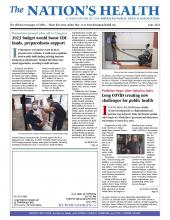
For more healthy social media usetips for kids, visit www.kidshealth.org.
Smiley faces. Pulsing hearts. Like, comment, share. Do any of these #sound @familiar?
Studies show that more than 3.6 billion people, or nearly half the world’s population, use social media. Whether you enjoy social media or give it a “thumbs down” emoji, it plays a major role in how we communicate.
According to the Pew Research Center, about 72% of Americans use social media to connect with friends and family, read news and just generally entertain themselves. Many of us start and end our days scrolling through Facebook and Instagram on our devices, checking to see who has shared something new or likes our posts and photos.
Regardless of how we use social media, it’s important to be aware of its effects on health. Some studies show that overuse of social media can increase stress, disrupt sleep, lead to poor performance at work or school, and trigger anxiety and depression. And there is the “FOMO” phenomenon, or “fear of missing out,” which can occur when people spend too much time scrolling through pictures of other people’s so-called “perfect” lives and perhaps feel a twinge of envy.
But many studies also show that social media can have tremendous benefits, such as providing an avenue for sharing important educational and health information, celebrating milestones, helping us feel connected to family and friends, and even serving as a lifeline when we’re lonely.
Like anything else, balance is key, says Gregory Scott Brown, MD, a psychiatrist and author.
“It can be difficult to find a good balance of how much time you should be spending on social media versus how much time you shouldn’t,” Brown says. “The pandemic made things worse because a lot of people were working from home and that gave them more of an opportunity to pull out their smartphones and tablets and scroll.”
Finding the right balance will require you to be intentional, Brown says. For example, you can decide when you’re going to be on social media and when you’re going to abstain.
“You can decide that you’re not going to post on weekends, or not going to post after 5 p.m.,” he says. “It’s just making sure we are maintaining a healthy level of social media consumption and not overdoing it.”
If you’re struggling to maintain that balance — for example, unable to sit through a family meal without checking your cellphone for updates — a break might make sense.
“Sometimes pausing your account for two weeks or a month is a good strategy,” he says.
Tips for teen screen time
Worried your kids are spending too much time on social media? A recent survey from Common Sense Media shows they probably are. According to the survey, social media use among kids has reached an all-time high, likely due to the COVID-19 pandemic. One troubling finding is that social media use is increasing for 8- to 12-year-olds, an age group technically restricted from opening an account on the major platforms.
According to digital literacy educator Diana Graber, MA, the amount of time kids spend on social media is a main worry among parents. Social media is designed to capture and hold attention, making it harder to combat.
“There is a lot of what they call ‘addictive design’ to keep you so you don’t go,” says Graber, co-founder of CyberWise, which shares resources to help youth use technology wisely.
So if your child is turning 13 and bugging you to open a social media account, what should you do?
“Be sure you open one too, because then you’ll understand what it is they are seeing and doing,” Graber says.
Some sites, such as TikTok, allow parents to link their account to their child’s and manage what their kids are doing.
“Just like you would go to their friend’s house to see where they’re hanging out, you should go online to see where they’re hanging out too, so you understand the environment and what it is they’re dealing with,” Graber says.
Pause before you post
While the sites and platforms may change, social media is not going to go away. Whether you’re 9 or 99, Graber offers these tips to enhance the quality of your experience.
Spend your time “liking” and following people you admire and posts that are positive.
Be kind. Remember that behind every screen is a real person with real feelings.
Keep in mind that when you “like” something, it’s like a vote, and you’re helping that post get more viewers, so use your vote wisely.
Understand how social media works. Algorithms are designed to feed you more of what it thinks you like. Be conscious about what you watch and like because whatever it is, you’re going to get more of it.
Be aware that everything you post will be online forever, can be seen by anyone and everyone, and strangers will judge you by your digital reputation.
Take advantage of tools that can help you manage your time and remind you when to put the phone down or walk away from your computer.
- Copyright The Nation’s Health, American Public Health Association









